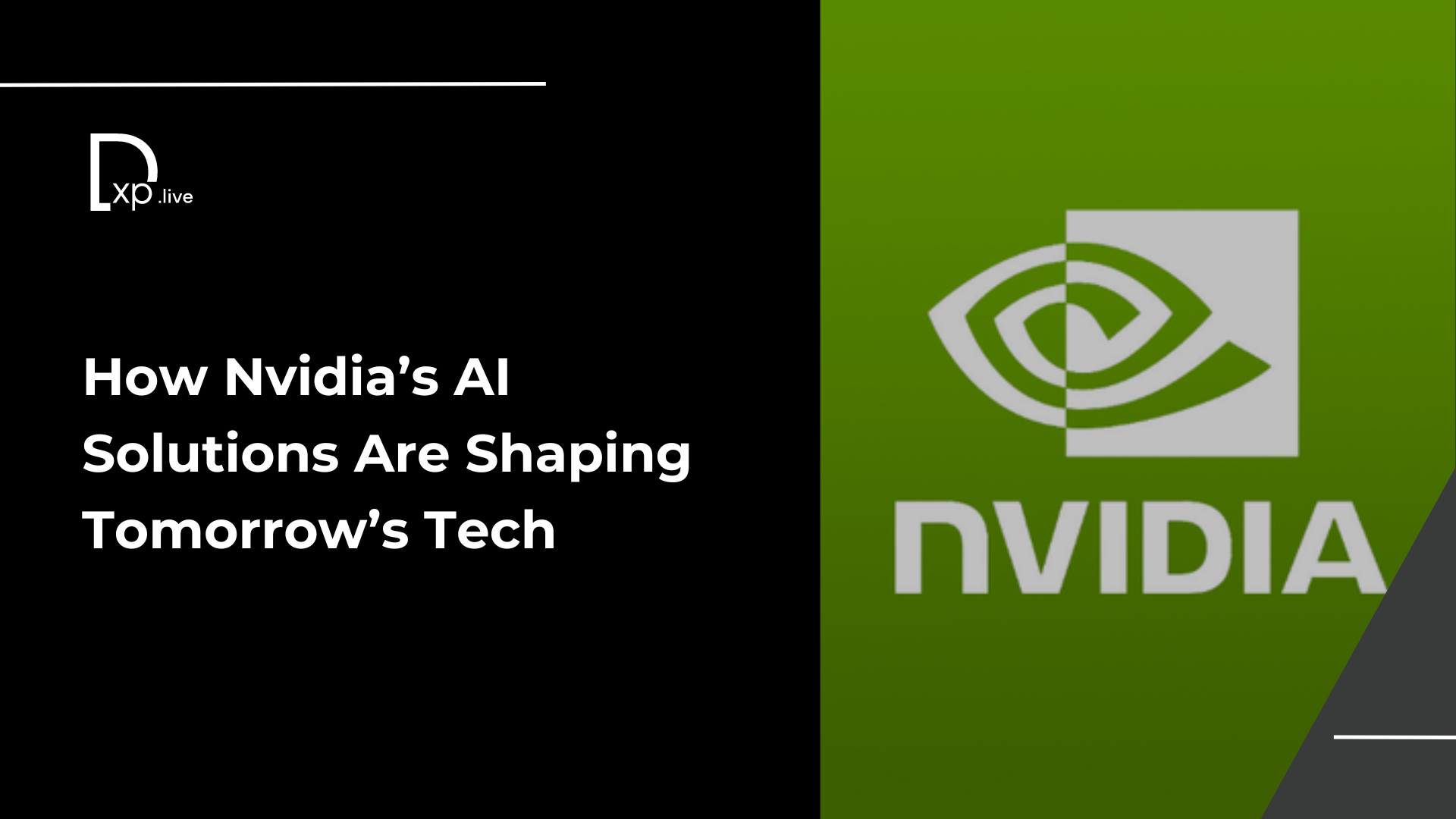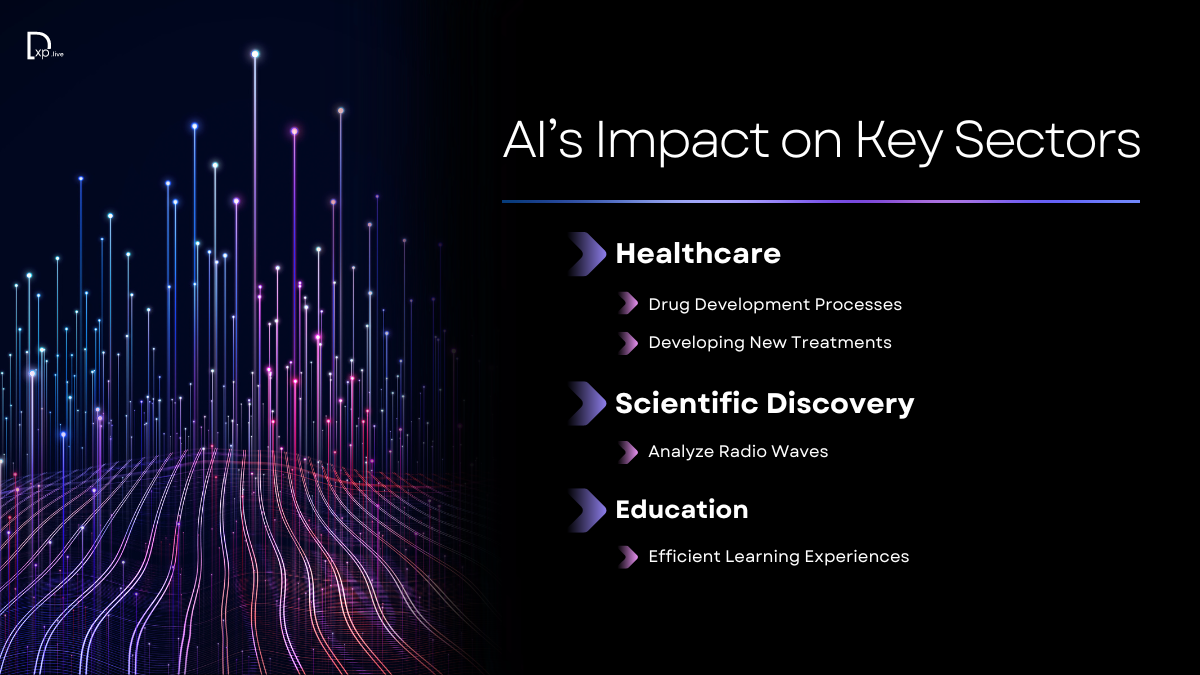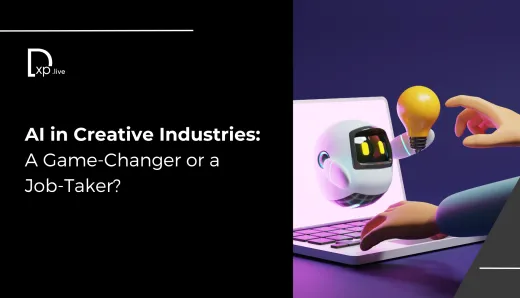How Nvidia’s AI Solutions Are Shaping Tomorrow’s Tech

For years, Nvidia has been synonymous with high-performance chips, specifically those powering the most advanced artificial intelligence (AI) systems. However, at the recent Nvidia AI Summit in Washington, D.C., the company made it clear that it’s moving beyond hardware to focus heavily on AI software and services. This strategic shift highlights Nvidia’s growing ambition to solidify itself as more than just a chipmaker and become a leading force in AI-driven software solutions.
In this blog, we’ll explore why Nvidia’s AI services are set to be a game changer for both the public and private sectors, the potential it holds for industries, and how these services could reshape the broader technology landscape.
The Evolution of Nvidia
Nvidia has long been known for producing some of the most powerful AI chips in the market, which are essential for running complex algorithms and supporting machine learning models. But as the demand for AI grows, so does the need for comprehensive platforms that allow businesses to build, deploy, and manage AI applications effectively. Nvidia’s recent focus on software shows a clear recognition of this shift.
One of the most significant takeaways from the AI Summit was Nvidia’s introduction of new AI platforms, such as Nvidia NeMo and NIM Agent Blueprints, designed to help businesses develop custom AI applications. These platforms are not just tools for tech giants but are also accessible to organizations across a variety of sectors, from healthcare to financial services to education. By moving into AI software, Nvidia is ensuring that companies will continue relying on its ecosystem for both hardware and software needs, building a long-term relationships with customers.
This evolution positions Nvidia to tap into new revenue streams, helping it hold its ground amid growing competition from rivals like AMD and Intel, which are also vying for leadership in the AI space.
Why These AI Services Matter
Nvidia’s shift to AI services offers businesses more than just cutting-edge hardware—it provides them with the software necessary to build scalable, intelligent systems. This is crucial as companies across industries increasingly adopt AI to stay competitive.
Take the example of AT&T, which is using Nvidia’s technology to develop conversational AI platforms for improving software development and financial services. By leveraging Nvidia’s AI platforms, companies like AT&T can streamline operations, increase efficiency, and provide better service to customers. In this case, Nvidia’s AI technology is an integral part of business operations.
What sets Nvidia’s AI services apart is their flexibility. Platforms like NIM Agent Blueprints allow businesses to develop generative AI applications specific to their needs, whether it’s creating intelligent chatbots or AI-driven customer service agents. The ability to customize these platforms makes them highly valuable for organizations looking to differentiate themselves in an increasingly AI-driven world.
Moreover, Nvidia’s focus on software encourages innovation at a grassroots level, attracting developers to its ecosystem. By making it easier for companies and individuals to build their own AI applications, Nvidia is fostering a culture of innovation, where more and more industries will integrate AI into their core operations.
AI’s Impact on Key Sectors

The implications of Nvidia’s AI services are far-reaching. Where the company's chips have already made a critical difference in industries that include the gaming and graphics world, the new AI platforms may one day revolutionize the entire range of industries, including healthcare, education, and research.
One striking example is the National Cancer Institute, which is using Nvidia’s NIM Agent Blueprint to speed up drug development processes. In healthcare, where time is often a critical factor, the ability to reduce the time and cost of developing new treatments could be transformative. The integration of AI in drug discovery not only accelerates research but also brings about more personalized healthcare solutions, ultimately benefiting patients.
Similarly, Nvidia’s collaboration with the SETI Institute showcases how AI can push the boundaries of scientific discovery. By using Nvidia’s Holoscan software development kit, the SETI Institute has been able to analyze radio waves in the search for extraterrestrial life. This example illustrates how Nvidia’s AI platforms are expanding beyond commercial applications and into once unimaginable research areas.
In education, Nvidia’s partnership with the University of Florida highlights how AI is shaping the future of learning. Through Nvidia NeMo and NIM, the university has enhanced its learning management system, providing AI-powered tools to improve the quality of education. This is just one example of how Nvidia’s AI technology can empower the education sector to deliver personalized and efficient learning experiences for students.
AI-Powered Future
Nvidia's growing AI service spurs a broader ripple effect across the larger tech world. The world is transitioning from hardware dominance into an age in which software, more specifically AI software, holds the future. The hardware business remains healthy on the books of Nvidia, but its investment in AI services enables the company to play a leadership role in guiding the future of innovation.
This will definitely make Nvidia's competitors, such as AMD and Intel, pay attention to the holistic approach that the company uses in the industry. Its holistic approach of providing businesses with the hardware and software for driving their AI ambitions is what gives Nvidia a competitive edge in the industry. As soon as the number of companies realizing the potential of AI increases, they will look toward Nvidia's ecosystem for both processing power and AI-driven solutions.
Nvidia's AI services provide the tools necessary for businesses to help build smarter systems, and from automating tasks to providing real-time insights, AI-powered solutions are changing the way industries work.
In a Nutshell
The transformation of Nvidia from being the dominant chipmaker to the leader in AI software represents an inflection point in the tech industry. This has helped business sectors by allowing companies to build and deploy customized AI applications, unlocking new levels of efficiency, innovation, and competitiveness.
As AI shapes the future of technology, Nvidia's AI platforms will undoubtedly play a key role in how businesses can adapt. From revolutionizing healthcare or enhancing learning, to speeding up scientific discovery, Nvidia's AI services are catalysts for innovation.
To businesses, the message is clear: invest in AI today and those will be tomorrow's leaders. All that Nvidia has provided for the tools is for such a future to come into being a reality.
Stay ahead of the curve and explore more insights on AI and technology trends by visiting digitalexperience.live. Keep your business at the forefront of innovation with the latest industry news and updates.
FAQs
Q. What are Nvidia’s AI services?
Nvidia’s AI services include platforms that help businesses develop and deploy custom AI applications.
Q. Why is Nvidia focusing on AI software?
Nvidia is expanding into AI software to provide complete solutions beyond hardware, driving innovation and recurring revenue.
Q. Which industries benefit from Nvidia’s AI services?
Industries like healthcare, education, financial services, and research are leveraging Nvidia’s AI platforms to enhance operations.
Q. How do Nvidia’s AI services impact the future of technology?
Nvidia’s AI services are accelerating innovation, enabling smarter, more efficient systems across various sectors.




